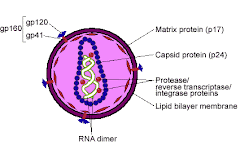"Why is it that some people can drink socially and not become addicted while others become alcoholics? The reason has to do with a combination of genetic, physiological, psychological and social factors.
Genes may be an important factor triggering the development of alcoholism. Research has indicated that children of alcoholics are four times more likely to become alcoholics themselves; and while this statistic is at least partly due to environmental factors, scientists have determined that there is a genetic link. Researchers are working to pinpoint exactly which genes increase a person's risk of becoming an alcoholic in order to develop new medications to treat alcoholism.
Physiologically, alcohol alters the balance of chemicals in the brain. It affects chemicals in the brain's reward center, such as dopamine. The body eventually craves alcohol to restore pleasurable feelings and avoid negative feelings. People who already suffer from high stress or psychological problems such as low self esteem and depression are at higher risk for developing alcoholism.
Social factors such as peer pressure, advertising and environment also play an important role in the development of alcoholism. Young people often start drinking because their friends are doing so. Beer and liquor ads on television tend to portray drinking as a glamorous, exciting pastime."
Living with an Alcoholic
"Alcoholism doesn't only take its toll on the alcoholic -- it affects everyone around him or her, especially family and friends. Research shows that more than 40 percent of Americans have been exposed to alcoholism in the family. One in five has grown up with an alcoholic.
Children of alcoholics are more likely to be abused and to experience anxiety, depression and behavioral problems than children of non-alcoholics. They also have an increased risk of becoming alcoholics themselves. There are several organizations geared specifically to treating the families of alcoholics, including Alanon."



















1 comment:
Alcoholism do run in families.
Post a Comment